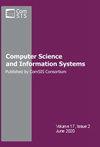如何在个体理性主体联盟中公平有效地分配任务?模型和公平措施
IF 1.2
4区 计算机科学
Q4 COMPUTER SCIENCE, INFORMATION SYSTEMS
引用次数: 0
摘要
如果在给定信息和知识的情况下,个体理性主体的参与所带来的收益至少与不参与所获得的收益一样高,那么个体理性主体将会参与多主体联盟。因为代理吗?绩效和技能可能因任务而异,关于个体代理-任务分配的决策将决定联盟的整体绩效。将单个智能体的任务分配效率最大化对应于传统的线性和分配问题,该问题将效率视为单个智能体-任务分配的成本或收益的总和。这种方法可能是不公平的,因为它没有明确地考虑公平性,因此,不适合个体理性的代理人。联盟。本文提出了平衡任务分配效率和公平的两种新的任务分配模型,并研究了个体理性主体任务分配的功利主义、平等主义和纳什社会福利。联盟。由于公平是一个相对抽象的术语,难以量化,我们提出了基于公平和平等的三个新的公平衡量标准,并用它们来比较新提出的模型。通过功能示例,我们表明通过使用所提出的模型,可以在任务分配的效率和公平之间进行合理的权衡。本文章由计算机程序翻译,如有差异,请以英文原文为准。
How to fairly and efficiently assign tasks in individually rational agents’ coalitions? Models and fairness measures
An individually rational agent will participate in a multiagent coalition if the participation, given available information and knowledge, brings a payoff that is at least as high as the one achieved by not participating. Since agents? performance and skills may vary from task to task, the decisions about individual agent-task assignment will determine the overall performance of the coalition. Maximising the efficiency of the one-on-one assignment of tasks to agents corresponds to the conventional linear sum assignment problem, which considers efficiency as the sum of the costs or benefits of individual agent-task assignments obtained by the coalition as a whole. This approach may be unfair since it does not explicitly consider fairness and, thus, is unsuitable for individually rational agents? coalitions. In this paper, we propose two new assignment models that balance efficiency and fairness in task assignment and study the utilitarian, egalitarian, and Nash social welfare for task assignment in individually rational agents? coalitions. Since fairness is a relatively abstract term that can be difficult to quantify, we propose three new fairness measures based on equity and equality and use them to compare the newly proposed models. Through functional examples, we show that a reasonable trade-off between efficiency and fairness in task assignment is possible through the use of the proposed models.
求助全文
通过发布文献求助,成功后即可免费获取论文全文。
去求助
来源期刊

Computer Science and Information Systems
COMPUTER SCIENCE, INFORMATION SYSTEMS-COMPUTER SCIENCE, SOFTWARE ENGINEERING
CiteScore
2.30
自引率
21.40%
发文量
76
审稿时长
7.5 months
期刊介绍:
About the journal
Home page
Contact information
Aims and scope
Indexing information
Editorial policies
ComSIS consortium
Journal boards
Managing board
For authors
Information for contributors
Paper submission
Article submission through OJS
Copyright transfer form
Download section
For readers
Forthcoming articles
Current issue
Archive
Subscription
For reviewers
View and review submissions
News
Journal''s Facebook page
Call for special issue
New issue notification
Aims and scope
Computer Science and Information Systems (ComSIS) is an international refereed journal, published in Serbia. The objective of ComSIS is to communicate important research and development results in the areas of computer science, software engineering, and information systems.
 求助内容:
求助内容: 应助结果提醒方式:
应助结果提醒方式:


